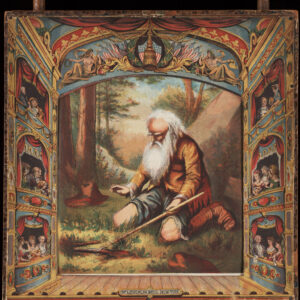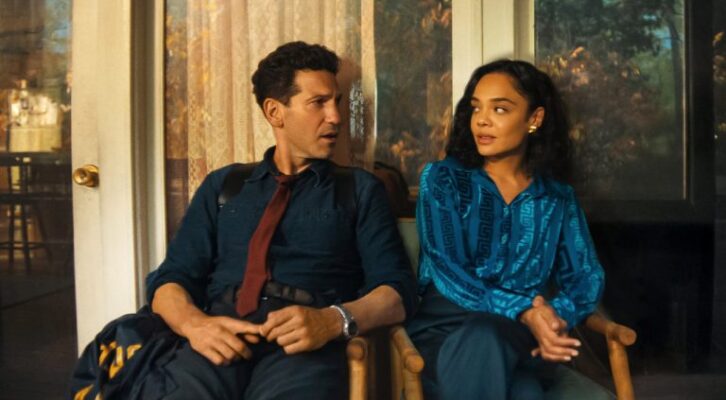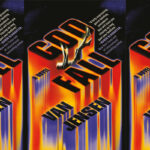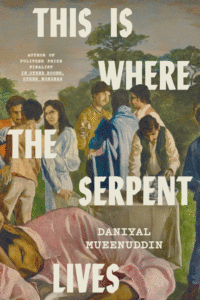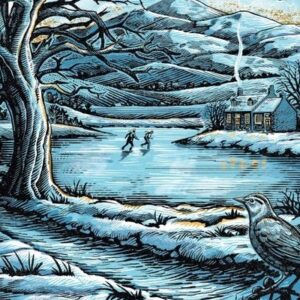
13 Writers Who Grew to Hate Their Own Books
"I think of it as my Star Trek novel."
If you know any writers, you may know that almost everyone hates their own book at some point. Usually it’s between draft 13 and draft 37, when there’s no end in sight, and they’re questioning everything, from the main character to the font. But some authors grow to dislike, disown, resent, or regret their books after publication—whether because of an unexpected critical or popular response, changes in their own views, or simple aging. In Palm Sunday, for instance, Kurt Vonnegut gives his own previously published novels letter grades (from A+ to D). And it’s not only novelists: W.H. Auden turned his back on a number of his own poems, including “Spain” and the very famous “September 1, 1939,” which he finally did allow, with a couple others, to be reprinted in a 1964 anthology, but only with this printed caveat: “Mr. W.H. Auden considers these five poems to be trash which he is ashamed to have written.” Below, a list of some other writers who wound up disavowing (or at least disapproving of) their own earlier works—some of them famous, and even beloved by millions. As K.V. would say: so it goes.
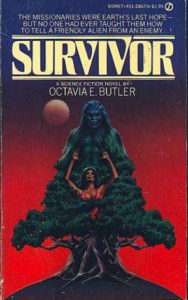
Octavia Butler, Survivor (1978)
Survivor was Butler’s third novel, and also the third in her first series, now called the Patternist series. Though the rest of the series was reprinted (some multiple times), Butler refused to allow Survivor to be included, and (rumor has it) she didn’t even like to talk about it at signings or appearances. In an interview, she said:
When I was young, a lot of people wrote about going to another world and finding either little green men or little brown men, and they were always less in some way. They were a little sly, or a little like “the natives” in a very bad, old movie. And I thought, “No way. Apart from all these human beings populating the galaxy, this is really offensive garbage.” People ask me why I don’t like Survivor, my third novel. And it’s because it feels a little bit like that. Some humans go up to another world, and immediately begin mating with the aliens and having children with them. I think of it as my Star Trek novel.
The novel is still out of print—used copies sell for about $175.
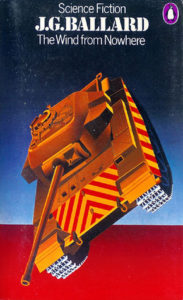
J.G. Ballard, The Wind from Nowhere (1961)
In a 1975 interview, Ballard admitted to writing his first novel, The Wind from Nowhere, entirely out of clichés, for much-needed money, and “as a conscious attempt to break into the paperback market”:
I wanted to give up my job, you see. I had my first story published in December ’56. By 1961 I’d been writing SF for five years and I’d written quite a lot of short stories. I had this gap after I went to the SF convention in ’57. Don’t take this personally or anything I think times have changed—but it put me off. I didn’t do any writing for about a year and a half, so there was a sort of gap. Then I restarted, and I wrote more stories. After five years, I realized I was getting old. I had three children. I was thirty or thereabouts, and I realized I was getting nowhere. We’d come to live here, out of necessity. We were driven out of London—once you had small children you were anathema. I had this very long railway journey up to Central London to my office every day. There I was coming home with these small children running around, and I was absolutely exhausted. My wife had had all these babies and she was tired. I knew the one thing I had to do was make a complete break and become a full-time writer. I knew I’d never write a novel—a serious novel—while I was not getting home till 8 o’clock in the evening. I was just too tired. But I had this fortnight’s holiday coming up, and my wife as a joke said—we hadn’t enough money to go away—”why don’t you write a novel in a fortnight?” So I thought: “Good, that’s sensible talking.” I’d already got, through Carnell, certain contacts with the American paperback people and I had a feeling that if I wrote a novel I could sell it, even if I wasn’t going to get very much money. In those days £300 could keep you going for a long time. So I said: “I’ll write a novel in ten days, six thousand words a day, during this holiday,” and I thought: “What shall I do?” So I had this idea about a whirlwind. I was tempted to approach it seriously. I mean, it could have been done on a completely serious level—by serious I mean on the level of the other novels, The Drowned World and so forth—and I nearly did do it that way. I don’t know whether it would have been any better, because the wind thing isn’t that interesting. So I thought I’d use all the clichés there are, the standard narrative conventions, and I sat down at the typewriter and I wrote the book. Six thousand words a day, which is quite a lot. I kept it up, and when I went back to the office I had the manuscript of a novel, which Carnell sold. He was then acting as my agent. I think I got £300—then, though of course it’s gone on and on. But that was enough and immediately I sat down and started writing The Drowned World. I wrote it in a short version first, and then expanded that to a novel.
Ballard has since sometimes referred to The Drowned World as his first novel, and biographers and journalists have often done the same. But the above reminds me of a mini version of Kazuo Ishiguro’s famous “crash” to write The Remains of the Day—seems like it worked out for both of them.
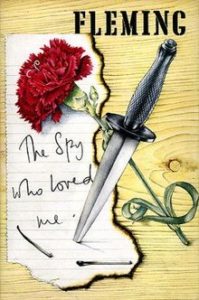
Ian Fleming, The Spy Who Loved Me (1962)
To be clear: Fleming did like this novel, at least at first. Then he heard what the reviewers had to say, and he was so upset that he wanted to more or less disown it. The book is a departure from the rest of the James Bond novels—it’s narrated by a girl, for one thing (saints alive!), and James Bond only comes into the picture later on. Fleming wrote the book this way for a specific reason, but the reviews were bad. In a letter to his publisher, dated only three days after the novel’s publication, Fleming wrote:
Both I and all of you have treated the whole of the James Bond saga with a light heart and so, with one or two exceptions, have the reviewers, most of whom for the first nine books have been very kind. But in the reviews of The Spy I detect a note of genuine disapproval. This surprised me because of the genesis of this particular book which should perhaps now be explained to you.
I had become increasingly surprised to find that my thrillers, which were designed for an adult audience, were being read in the schools, and that young people were making a hero out of James Bond when to my mind, and as I have often said in interviews, I do not regard James Bond as a heroic figure but only as an efficient professional in his job.
So it crossed my mind to write a cautionary tale about Bond to put the record straight in the minds particularly of younger readers.
. . .
I haven’t bothered to explain my reasons for writing this book before and I only do so now because the experiment has obviously gone very much awry, and I am in general being criticized for doing almost the exact opposite of what I intended.
This being so, and though we may get more understanding reviews later, I would like this book of mine to have as short a life as possible, and the subject of this letter is to ask you to cooperate.
In particular I would like there to be no reprints after your present edition is exhausted, and I would ask that it not be offered to Pan Books through whom, presumably, it would reach a more junior audience than your hard cover edition.
This will mean considerable financial sacrifice by both of us and I must just ask you to accept your share of this loss in as friendly a spirit as you can muster.
He did finally sell the film rights, but—oddly—only gave permission for the title to be used, and not any of the plot elements. Still, one character from the book did manage to slip in, under an assumed name. Which is a very good piece of spywork, if you ask me.
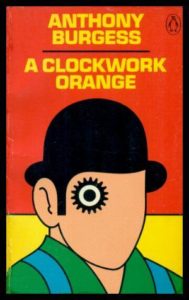
Anthony Burgess, A Clockwork Orange (1962)
Like Fleming, it’s not so much the contents of his novel that Burgess wound up disliking, but the cultural reaction to it, and, necessarily, his place in that reaction. In Flame into Being, an 1985 biography of D. H. Lawrence, Burgess compared Lady Chatterley’s Lover to his own A Clockwork Orange, writing:
We all suffer from the popular desire to make the known notorious. The book I am best known for, or only known for, is a novel I am prepared to repudiate: written a quarter of a century ago, a jeu d’esprit knocked off for money in three weeks, it became known as the raw material for a film which seemed to glorify sex and violence. The film made it easy for readers of the book to misunderstand what it was about, and the misunderstanding will pursue me until I die. I should not have written the book because of this danger of misinterpretation, and the same may be said of Lawrence and Lady Chatterley’s Lover.
In his introduction to the 1986 American edition of A Clockwork Orange, Burgess called it “my little squib of a book” and wrote that
the book does also have a moral lesson, and it is the weary traditional one of the fundamental importance of moral choice. It is because this lesson sticks out like a sore thumb that I tend to disparage A Clockwork Orange as a work too didactic to be artistic. It is not the novelist’s job to preach; it is his duty to show. I have shown enough, though the curtain of an invented lingo gets in the way—another aspect of my cowardice.
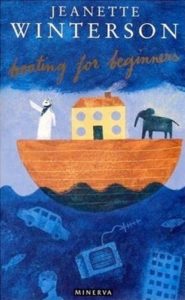
Jeanette Winterson, Boating for Beginners (1985)
Winterson likes her book well enough—she just doesn’t think it’s very important. After all, she only wrote it for the money. “This is a comic book with pictures,” she explains on her website. “I published it 3 months after Oranges [Are Not the Only Fruit] came out, and if that isn’t proof enough that it was never intended as a second novel, then what else can I say? Writers don’t publish their serious work three months apart in the same year and even if they wanted to, their publishers wouldn’t let them.” She wrote the whole thing in six weeks. Why? She needed the money. “Nothing wrong with that,” she says.
I never write my real books for money, but I have no problem writing anything else with the bung in mind. . . I was 24, waiting for Oranges to come out, didn’t know what to expect or what I would do later, and I got an offer to do something funny. You have to remember that the status Oranges has now was not how it was then. On the strength of Oranges the publishers thought I could do some comedy for their humour list. So I knocked up B for B and of course just after it appeared Oranges won the Whitbread and then I just didn’t make sense to people.
She also wrote a fitness book in 1986 entitled Fit for the Future. “Again, money,” she says, “and because I was a fitness freak. Well, I still am. That book is out of print now.”

Annie Proulx, Close Range: Wyoming Stories (1999)
To be clear, this is only about one story in her collection—you know which one. Like Burgess, Proulx’s issue with her most famous work has a lot to do with the famous film adaptation. “I wish I’d never written the story,” she told the Paris Review. “It’s just been the cause of hassle and problems and irritation since the film came out. Before the film it was all right.” Maybe it was the film that made people feel they understood the characters, or maybe it just made the story famous enough that people began coming out of the woodwork:
In Wyoming they won’t read it. A large section of the population is still outraged. But that’s not where the problem was. I’m used to that response from people here, who generally do not like the way I write. But the problem has come since the film. So many people have completely misunderstood the story. I think it’s important to leave spaces in a story for readers to fill in from their own experience, but unfortunately the audience that “Brokeback” reached most strongly have powerful fantasy lives. And one of the reasons we keep the gates locked here is that a lot of men have decided that the story should have had a happy ending. They can’t bear the way it ends—they just can’t stand it. So they rewrite the story, including all kinds of boyfriends and new lovers and so forth after Jack is killed. And it just drives me wild. They can’t understand that the story isn’t about Jack and Ennis. It’s about homophobia; it’s about a social situation; it’s about a place and a particular mindset and morality. They just don’t get it. I can’t tell you how many of these things have been sent to me as though they’re expecting me to say, Oh great, if only I’d had the sense to write it that way. And they all begin the same way—I’m not gay, but . . . The implication is that because they’re men they understand much better than I how these people would have behaved. And maybe they do. But that’s not the story I wrote. Those are not their characters. The characters belong to me by law.
. . .
I haven’t had the same sort of problem with anything else I’ve ever written. Nothing else. People saw it as a story about two cowboys. It was never about two cowboys. You know you have to have characters to hang the story on but I guess they were too real. A lot of people have adopted them and put their names on their license plates. Sometimes the cart gets away from the horse—the characters outgrew the intent.
It does sound annoying, but I suppose there are worse things than having your characters be too well-written.
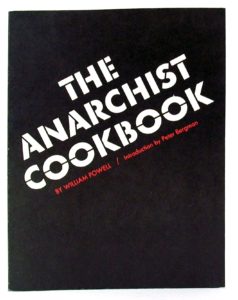
William Powell, The Anarchist Cookbook (1971)
Powell wrote the famous cult book—which includes instructions for building and planting bombs, cooking tear gas and making your own silencer—as a teenager, but in 2000, he wrote a letter to the book’s fan club (the book has a fan club), disavowing it:
The book was written during 1968 and part of 1969 soon after I graduated from high school. At the time, I was 19 years old and the Vietnam War and the so-called “counterculture movement” were at their height. I was involved in the anti-war movement and attended peace rallies and demonstrations.
The book was a misguided product of my adolescent anger at the prospect of being drafted and sent to Vietnam to fight in a war that I did not believe in. The central idea was that violence is an acceptable means to bring about political change. I no longer agree with this.
. . .
I am not in agreement with the contents of The Anarchist Cookbook, and I would be very pleased (and relieved) to see its publication discontinued. I consider it a misguided and potentially dangerous publication which should be taken out of print.
However, Powell does not have the ability to take the book out of print—the copyright is owned by the book’s publishers. In 2013, after a school shooting at Arapahoe High School in Colorado—the shooter had read Powell’s book—Powell told NBC News that “The Anarchist Cookbook should go quietly and immediately out of print. . . It is no longer responsible or defensible to keep it in print.” For the Guardian, he wrote, “I do not know the influence the book may have had on the thinking of the perpetrators of these attacks, but I cannot imagine that it was positive. The continued publication of the Cookbook serves no purpose other than a commercial one for the publisher.”

Stephen King (as Richard Bachman), Rage (1977)
Stephen King wrote the first draft of this novel—about a kid who takes a gun to school, kills a teacher, and holds his class hostage—when he was a teenager. After he became a successful author, it was republished as Rage. It wasn’t a huge hit—but in the ’80s, it began showing up in the lockers and pockets of school shooters. Four of them, to be exact. “That was enough for me,” King wrote in his 2013 essay “Guns.”
I asked my publishers to pull the novel from publication, which they did, although it wasn’t easy. By then it was part of an omnibus containing all four Bachman books. . . the Bachman collection is still available, but you won’t find Rage in it. . . . My book did not break [the shooters] or turn them into killers; they found something in my book that spoke to them because they were already broken. Yet I did see Rage as a possible accelerant, which is why I pulled it from sale. You don’t leave a can of gasoline where a boy with firebug tendencies can lay hands on it.
Still, King says, the book has some value, and he pulled it with regret.
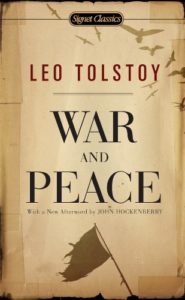
Leo Tolstoy, War and Peace (1867)
Late in his life, says literary critic and Tolstoy scholar Pavel Basinksy, “Tolstoy really grew ashamed of having written War and Peace and Anna Karenina.”
This resulted from the “spiritual breakthrough,” when Tolstoy disowned all his earlier works for the sake of his new religious convictions. The same thing actually happened to Gogol at the end of his life, when he disowned Dead Souls and The Government Inspector. To Tolstoy, the change came in his prime, when he had just turned 50 and was physically and mentally able. This is a very specific and very Russian fate: Russians are known for burning bridges, suddenly renouncing everything they did before. We can see that in our history as well: first in 1917, then again in 1991. It’s a bad thing for society, but it is always interesting if it’s a turn in one’s personal life.
In essays written around this time, Tolstoy also threw Shakespeare and Chekhov (the plays, not the stories) under the bus, so at least he’s in good company in his own disdain.
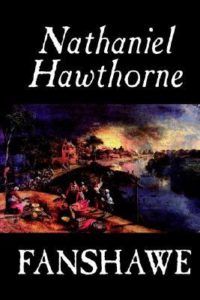
Nathaniel Hawthorne, Fanshawe (1828)
Hawthorne’s first novel was a slim campus novel (one of the first), based on his own experiences as an undergraduate at Bowdoin College. It wasn’t, however, his first choice—he wrote it after giving up on the publication of a collection entitled Seven Tales of My Native Land, the manuscript of which he eventually burned. Next, he wrote and self-published Fanshawe, anonymously, spending $100. But he soon soured on that too. “There were a few copies sold,” his sister Elizabeth explained, “and he gave me one; but afterwards he took possession of it, and no doubt burned it. We were enjoined to keep the authorship a profound secret, and of course we did, with one or two exceptions.” In fact, Hawthorne claimed not to have written the novel at all. In 1851, Hawthorne wrote to a friend, James T. Fields, who had asked him about Fanshawe:
You make an inquiry about some supposed former publication of mine. I cannot be sworn to make correct answers as to all the literary or other follies of my nonage; and I earnestly recommend you not to brush away the dust that may have gathered over them. Whatever might do me credit you may be pretty sure I should be ready enough to bring forward. Anything else it is to our mutual interest to conceal; and so far from assisting your researches in that direction, I especially enjoin on you, my dear friend, not to read any unacknowledged page that you may suppose to be mine.
All I can say is: it’s a good thing Hawthorne was not around for the Internet.
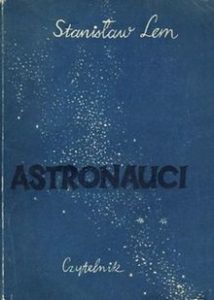
Stanislaw Lem, The Astronauts (1951)
Lem’s first novel (technically—he had previously published a novel in serial form in a Polish weekly, as well as a novella) is a Communist utopia written for teenagers. Of the novel, Lem wrote:
Today I am of the opinion that my first science-fiction novels lack any value (despite the fact that I gained world acclaim through their numerous editions). I wrote them—this was the case with Astronauci (The Astronauts) published in 1951—driven by motives that I still understand today, however the world presented in them radically differs from all experiences of my life.
Everything is so smooth and balanced; among the heroes we have a positive Russian character and a sweet Chinese; naiveté is present on all pages of this book. The hope that in the year 2000 the world would be wonderful is indeed very childish . . . As a very young man to a certain extent I must have resembled a sponge that sucked in postulates proposed by socialism. I was concentrated on making the world more and more positive. In a certain sense I fooled myself, since my feelings and hopes were genuine. Today I am a bit disgusted by this book.
Perhaps for this reason, it has never been translated into English.

Peter Benchley, Jaws (1974)
Benchley’s debut novel sold 20 million copies and also, of course, became the basis for the hugely successful Steven Spielberg (Benchley co-wrote the screenplay). But Benchley deeply regretted the shark-paranoia that he spawned with his work. In fact, after the book was published, he became a shark conservationist and sought to educate people about the animals and their very slim threat to humans. “Knowing what I know now, I could never write that book today,” Benchley said in an interview shortly before his death. “Sharks don’t target human beings, and they certainly don’t hold grudges.”
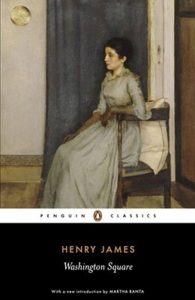
Henry James, Washington Square (1880)
As Mona Simpson put it in the New Yorker:
Henry James’s Washington Square wasn’t a particular favorite of its author. James called the short novel “poorish” and, in a letter to his daunting older brother, William, wrote, “The only good thing in the story is the girl.” Near the end of his life, when he selected work to revise for his culminating New York Edition, he didn’t pick Washington Square, dismissing it as one of his “unhappy accidents.”
But we pick it, again and again. Among posthumous readers, Washington Square is a pronounced favorite, both with James connoisseurs, (who don’t often return to Daisy Miller, James’s most popular book during his lifetime) and the wider public.
Emily Temple
Emily Temple is the managing editor at Lit Hub. Her first novel, The Lightness, was published by William Morrow/HarperCollins in June 2020. You can buy it here.









